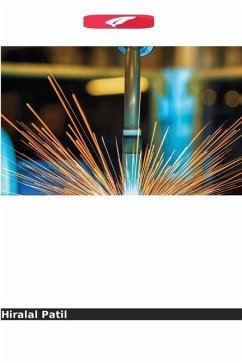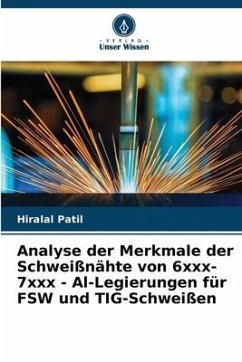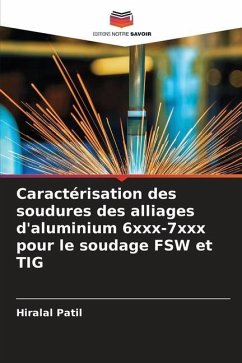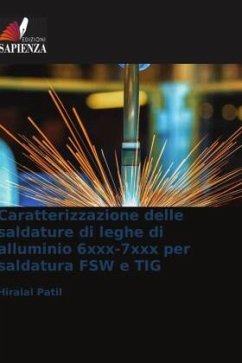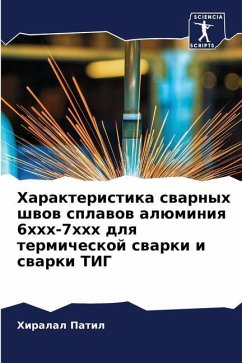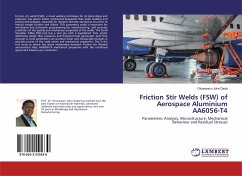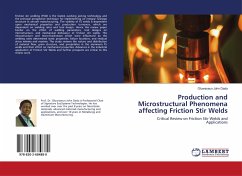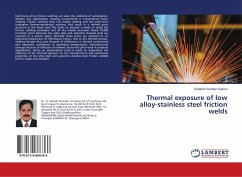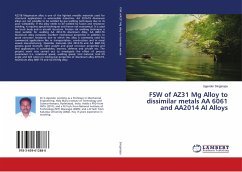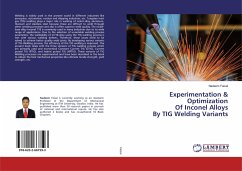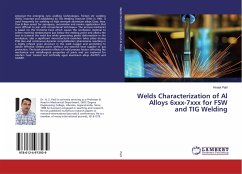
Welds Characterization of Al Alloys 6xxx-7xxx for FSW and TIG Welding
Versandkostenfrei!
Versandfertig in 6-10 Tagen
43,99 €
inkl. MwSt.

PAYBACK Punkte
22 °P sammeln!
Amongst the emerging new welding technologies, friction stir welding (FSW), invented and established by The Welding Institute (TWI) in 1991, is used frequently for welding of high strength aluminium alloys (2xxx, 6xxx, 7xxx & 8xxx series) for aerospace, automotive and marine applications that were difficult to join with conventional techniques. The process mechanics is based on the frictional heat which causes the workpiece material to soften reaching temperatures just below the melting point and allows the tool to traverse the weld line while generating plastic deformation in the workpiece; a...
Amongst the emerging new welding technologies, friction stir welding (FSW), invented and established by The Welding Institute (TWI) in 1991, is used frequently for welding of high strength aluminium alloys (2xxx, 6xxx, 7xxx & 8xxx series) for aerospace, automotive and marine applications that were difficult to join with conventional techniques. The process mechanics is based on the frictional heat which causes the workpiece material to soften reaching temperatures just below the melting point and allows the tool to traverse the weld line while generating plastic deformation in the workpiece; also a significant microstructural evolution takes place during FSW due and continuous dynamic recrystallization phenomena resulting in a highly refined grain structure in the weld nugget and permitting to obtain effective welded joints without any external heat supplier or gas protection. The book presents effects of weld process factors affecting the mechanical and metallurgical properties of joints and are explored for solution heat treated and artificially aged aluminium alloys AA7075 and AA6061.



